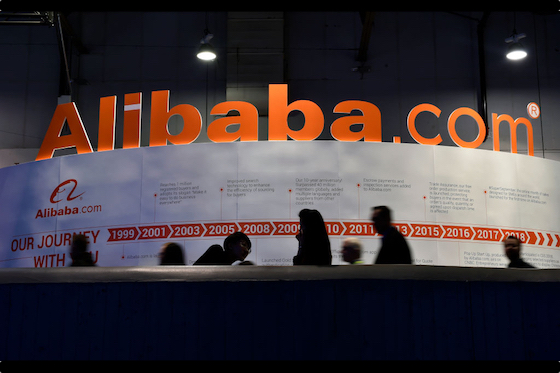Imagine walking into a hotel without waiting in the check-in line. The elevator takes you to your floor without you touching any button. Your room door automatically unlocks once you are there. Lights, curtains, room temperatures and TV adjust at your voice command. Room service orders are taken by AI and delivered by a robot. Grab a drink at the bar without having to sign any bill – just don’t be scared if your bartender turns out to be a robot.
No, I’m not talking about the 2016 sci-fi movie “Passengers.” This is Chinese ecommerce, retail and tech giant Alibaba’s futuristic hotel FlyZoo, which opened in October in Hangzhou, China. Its catchy Chinese name – Fei Zhu Bu Ke, “you’ve gotta live there,” is almost homophonic to Facebook’s pronunciation in Chinese.
I’ve previously written about Alibaba’s collaboration with Marriott International in AI technology, hoping to redefine the end-to-end in-hotel experience (in 2017, Marriott entered a JV with Alibaba, which meant Alibaba’s travel service platform Fliggy manages Marriott’s storefront on the platform.) Now it seems that Alibaba has learned so much that it’s finally ready to roll out its “minimum viable product,” as they say in the tech world.
In fact, Alibaba’s ambition to break into the hotel world dates back five years ago when it formed a strategic partnership with Shiji, the largest hotel IT service provider. Later in 2016, Alibaba’s Alitrip division formed a joint venture with Shiji to design a hotel for the future, which ultimately became FlyZoo. To deepen the partnership, Alibaba even acquired 38% ownership of Shiji’s retail IT services in November 2017, with additional investments a few months later.

By Charlie Liu, business analyst for Amsterdam-based tech company Adyen
Another IoT contender, Xiaomi, with its vast network of IoT smart devices, has a tremendous first-mover advantage to reshape hotel tech infrastructure. Now, it seems that Alibaba has gained the upper hand by leveraging the synergy from its dominant positions across AI, cloud computing, IoT and even smart retail and fintech, or financial technology, which includes an umbrella of offerings like mobile payments and cryptocurrency.
For example, although the FlyZoo Hotel project was officially led by Alitrip, it was actually an integration of Alibaba subsidiaries including AlibabaCloud, which built the hotel’s big data infrastructure, Alibaba AI Lab, which designed the robots used in the hotel, Alipay and Taobao, which have already been intensively using the voice and facial recognition algorithms, and even Tmall and Hema, which provided supply chain solutions for furniture, toiletry, and food and beverage. It suffices to say that Alibaba wouldn’t be able to build FlyZoo without its comprehensive capabilities across all aspects of the tech and supply chain ecosystem.
But could this be just a buzz? Will it be scalable? We’ve already seen some boutique hotels trying to ride on the wave of tech-enabled smart experience, such as the Instagram-famous Zoku in Amsterdam. Judging from how fast and deeply Alibaba has shaped the world of high-end retail with Alipay and Tmall, its potential to disrupt hospitality should not be underestimated.
Having said that, hotels should not be scared. Alibaba is not the barbarian at the gate to take away your market share. A year ago, its affiliate Ant Financial, which owns Alipay, pivoted the strategy from fintech to techfin, signaling a shift from disrupting the banks to empowering the evolution and sustainable success of banks. Similarly, Alibaba and Alitrip’s mission is to be the new brain to empower new hotel experience.
One challenge for FlyZoo is to scale its model internationally, with data security being one of the biggest concerns. Since all of the smart experiences rely on the big data infrastructure and AI algorithms, a data breach of the scale facing Marriott International would be fatal. Moreover, with segmented data privacy policies around the world, Alibaba will need to devote significant resources to align with various regulators. Even as Alibaba boasts the best cloud computing, big data infrastructure, and even blockchain and crypto technology in China, global scalability is far from being smooth sailing.
That’s partly why we saw Alibaba invest over US$100 million into Data Artisan, the German startup specializing in distributed systems and enterprise data streaming services. In fact, Alibaba and Data Artisan have been working together since 2016, and the new investments will likely deepen Alibaba’s footprint in Europe, where data security policy is the strictest while tourism market is also the most attractive.
Another implication of FlyZoo is its potential to break the different silos of a tourist’s whole journey, including hotel stay, transportation and unified commerce. We don’t need to stress again Alibaba’s powerful position in ecommerce. Even in the OTA world, Alitrip has been growing fast against global giant Ctrip. Don’t forget that Alibaba is a strategic investor of Chinese ride-sharing company Didi, which in turn has invested and partnered with almost all ride-sharing startups around the world.
Maybe sooner than expected, we can expect the whole value chain of tourism to be connected all the way down to the level of big data infrastructure. We are finally seeing glimpses of smart travel’s future.
